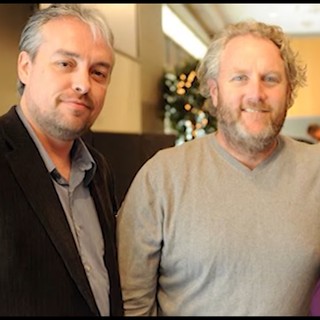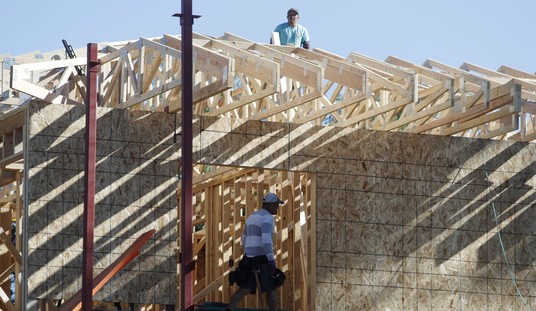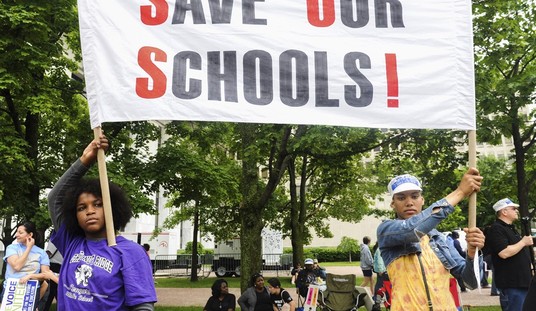President Donald Trump made clear Wednesday that his tariff increase is going into effect April 2nd, and one of the main features is that automobiles coming into this country from Mexico and Canada will have a much higher rate than they do right now.
We covered that part of the story right here. Watch: Trump Talks Tariffs on New Cars Imported to US in Announcement Presser.
During a press conference in the Oval Office on Wednesday, President Trump announced that all cars and trucks imported into the United States beginning on April 1 will be slapped with tariffs. He helpfully explained which vehicles will and will not be affected by the move:
President Trump said on Wednesday that he would impose a 25 percent tariffs on all cars that are shipped into the United States.
The tariffs will go into effect on April 2, and will apply to finished cars and trucks that are shipped into the United States, including American brands whose automobiles are assembled overseas.
...
The move is aimed at pushing companies to set up more factories into the United States, a primary goal for Mr. Trump, who called the move “very exciting" during remarks from the Oval Office.
“Anybody who has plants in the United States, it’s going to be good for,” Mr. Trump said.
The president, calling the new tariffs "modest," explained that this will only affect cars "not made in the United States. If they're made in the United States, there's absolutely no tariff.
Tariffs are of course one of the issues that Trump talked about leading up to the election of 2024 and something that he had revamped in his first term by eliminating the North American Free Trade Agreement between the United States, Canada, and Mexico and negotiating the United States- Mexico- Canada trade agreement.
I live in southeast Michigan and I'm just north of the city of Detroit, and everyone in this area has been watching this very closely because of our close affiliation with the auto industry. So this is a story that I'm watching closely and have sat with arms crossed, wondering how this will all shake out.
Donald Trump did similar things and renegotiated the trade agreements in his first term, and because of the tax reductions that he got passed, the economy did not slow down or crash as some expected. The economy was humming along until the nation was shut down because of COVID-19.
So I figured I would check out what the head of the United Auto Workers thought. Shawn Fain was quoted right HERE:
Meanwhile, the United Auto Workers applauded the new policy as a step toward ending "the free trade disaster that has devastated working-class communities for decades," UAW President Shawn Fain said in a statement.
“The UAW has been clear: we will work with any politician, regardless of party, who is willing to reverse decades of working-class people going backwards in the most profitable times in our nation’s history," Fain said.
He added: "These tariffs are a major step in the right direction for autoworkers and blue-collar communities across the country, and it is now on the automakers, from the Big Three to Volkswagen and beyond, to bring back good union jobs to the U.S.”
This is a bit of a departure for Shawn, seeing as he was not a fan of Trump running for president last year and said some not-very-nice things.
The United Auto Workers union, which endorsed Kamala Harris for president in 2024, has praised the Trump administration's newly imposed tariffs on imported vehicles, signaling a dramatic shift in its political stance.
In a news release issued Wednesday, the UAW hailed the tariffs as "the beginning of the end of a thirty-plus year 'free trade' disaster," referring to the North American Free Trade Agreement and its successor, the US-Mexico-Canada Agreement.
President Trump has signed a proclamation imposing a 25% tariff on imports of automobiles and certain automobile parts, addressing what he called "a critical threat to U.S. national security."
"We applaud the Trump administration for stepping up to end the free trade disaster that has devastated working class communities for decades," said UAW President Shawn Fain in the release. "Ending the race to the bottom in the auto industry starts with fixing our broken trade deals, and the Trump administration has made history with today’s actions."
The union's praise starkly contrasts with its August 2024 endorsement of Harris, during which Fain characterized then-candidate Donald Trump as "a scab and a lapdog for the billionaires." The 2024 release emphasized Harris's support for workers, highlighting her presence on a picket line.
I'm going to guess that the candidate that the UAW endorsed with their membership vote last year, Kamala Harris, would not have done this action and received this type of praise from the UAW president.
I'm taking a guess.
Now the tricky part begins, which I imagine many others will be watching here in the shadow of the Motor City.
Tariffs are a tax on goods coming into the United States. We have been targeted and singled out by other countries that have put large tariffs on our goods, making American products uncompetitive overall in those countries.
The idea of moving manufacturing back to the United States, of course, is a great idea, and if it works as well as the president hopes, he will be seen as a blue-collar hero, which would confuse people like Shawn Fain, who complained last year about Trump being a billionaire and out of touch with his workforce.
However, the Trump tax cuts during his first term did stimulate the economy, and I don't recall there being an overall drag-down effect while the new trade agreement was hammered out with higher tariffs. Maybe there was a slight effect, but it was going pretty well until the China virus hit.
My fingers are crossed, and I'm hoping for the best.















